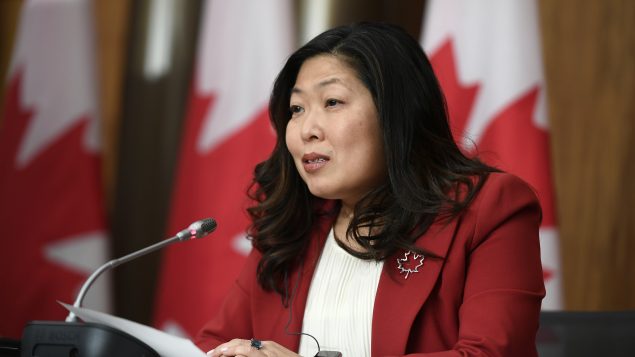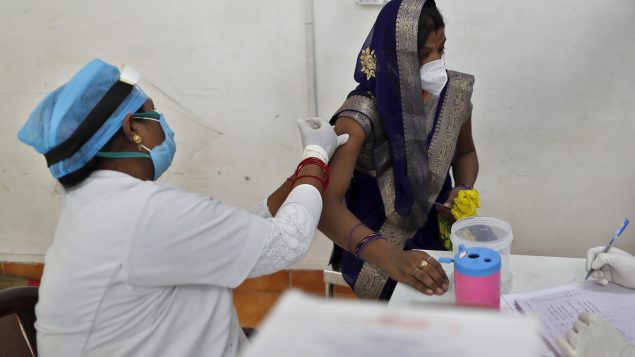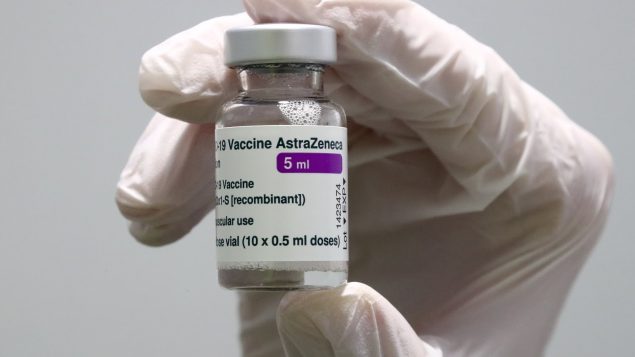Canada’s minister for international trade says the country is “ready to discuss” proposals to waive intellectual property protection for COVID-19 vaccines under a World Trade Organization (WTO) agreement that allows poorer countries to circumvent patent protections in public health emergencies.
The WTO Agreement on Trade-Related Aspects of Intellectual Property Rights (TRIPS), which came into effect in 1995, established a minimum level of protection for intellectual property.
Article 8 of the agreement recognizes the rights of countries to adopt measures for public health and other public interest reasons and to prevent the abuse of intellectual property rights, provided that such measures are consistent with the provisions of the TRIPS Agreement.
“Our government firmly believes in the importance of protecting IP (intellectual property), and recognizes the integral role that industry has played in innovating to develop and deliver life-saving COVID-19 vaccines,” Mary Ng said in a statement on Friday.
“Canada is ready to discuss proposals on a waiver for intellectual property (IP) protection, in particular for COVID-19 vaccines, under the WTO Agreement on TRIPS.”
‘Profits over public health’

Minister of International Trade Mary Ng participates in a news conference on the Canada-United Kingdom Trade Continuity Agreement in Ottawa, on Saturday, Nov. 21, 2020. (Justin Tang/THE CANADIAN PRESS)
The statement comes after the U.S. announced Wednesday it will lift patent protections for COVID-19 vaccines to potentially allow international production, a move that could aid developing countries’ vaccination efforts.
The European Union has also expressed willingness to lift intellectual property rights for COVID-19 vaccines, European Commission President Ursula von der Leyen said on Thursday.
“Since the introduction of the IP waiver proposal, Canada has actively worked with partners to identify barriers to vaccine access—many of which are unrelated to IP, such as supply chain constraints,” Ng said.
“We remain committed to finding solutions and reaching an agreement that accelerates global vaccine production and does not negatively impact public health.”
- Oxfam slams Canada’s reticence on vaccine patent waivers
- Alliance outraged at ‘vaccine apartheid,’ companies’ billion-dollar pay-outs
Diana Sarosi, Oxfam Canada’s director of Policy and Campaigns, said while the announcement by Ng is “a step in the right direction,” the world needs is “a full backing by Canada to waive intellectual property protections for COVID-19 vaccines.”
“This waiver will pave the way for increasing the global supply of vaccines and will fundamentally alter the trajectory for the world’s poorest and most vulnerable to escape the depths of the pandemic,” Sarosi said.
“Today’s statement by the Government of Canada continues their wait and see approach and downplays IP as a barrier to supply problems. Thus, Canada continues to prioritize profits over public health.”
Innovative Medicines Canada, an industry group that represents some pharmaceutical companies, said it is opposed to any waiver.
It “will not address the real issues of trade barriers, global supply chain bottlenecks and scarcity of raw materials that are impacting the supply of COVID-19 vaccines,” it said in a statement.

A woman receives the AstraZeneca vaccine for COVID-19 at a hospital in Prayagraj, India. Saturday, May 1, 2021. In hopes of taming a monstrous spike in COVID-19 infections, India opened vaccinations to all adults Saturday, launching a huge inoculation effort that was sure to tax the limits of the federal government, the country’s vaccine factories and the patience of its 1.4 billion people. (Rajesh Kumar Singh/AP Photo)
Around 100 countries, led by India and South Africa, have previously asked fellow WTO members to agree to a time-limited lifting of COVID-19-related intellectual property rights as the virus has spread in developing nations that have been unable to execute strong vaccination campaigns.
The World Health Organization said in April that of 700 million vaccines administered around the world, only 0.2 per cent had been in low-income countries.
However, any decision by the WTO has to be agreed upon by all 164 members, and negotiations within the international trade body have historically taken up to months to complete.
“Canada has always been, and remains, a strong advocate for equitable access to vaccines and medical supplies around the world through our support for the Access to COVID-19 Tools (ACT) Accelerator and the COVAX Facility,” Ng said.
“To date, we have announced $940 million to support low- and middle-income countries to access COVID-19 vaccines, tests, and treatments because we understand that the pandemic isn’t over anywhere, until it is over everywhere.”
With files from CBC News, Reuters and The Associated Press







For reasons beyond our control, and for an undetermined period of time, our comment section is now closed. However, our social networks remain open to your contributions.